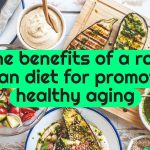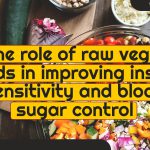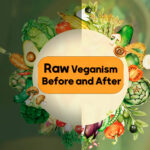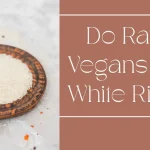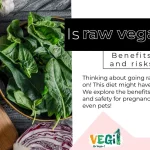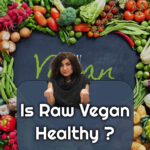Raw vegan diets and their potential benefits for reducing the risk of heart disease
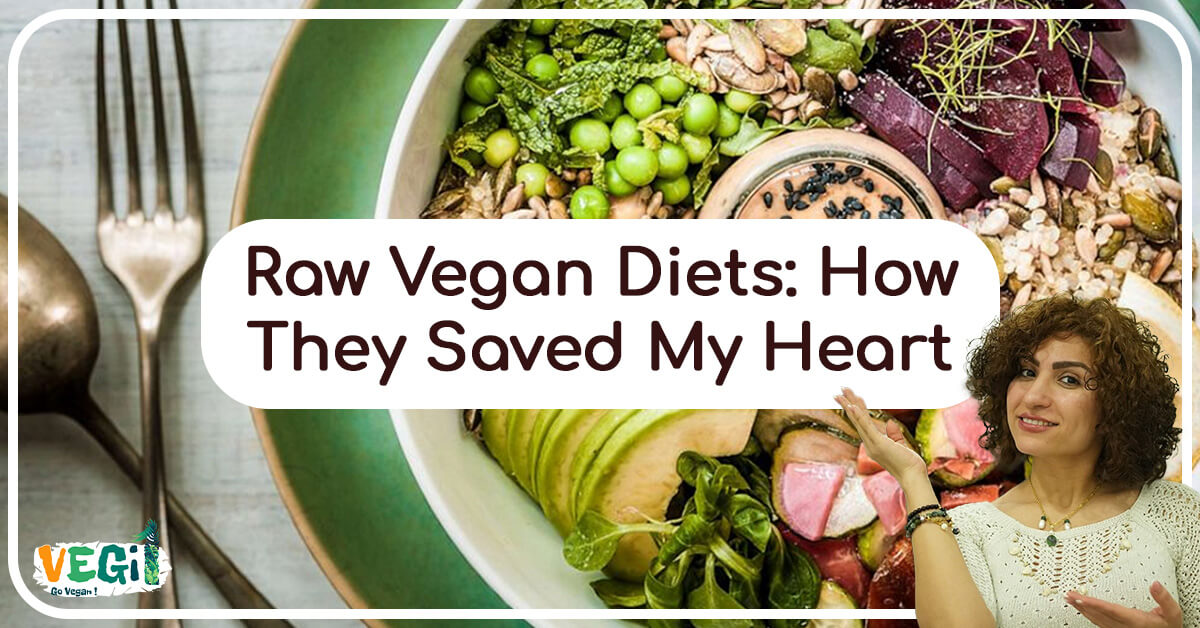
In Today’s world, we witness a massive change in people’s diets by being informed about the benefits of a vegan diet. Based on this, the number of people who shift to a raw vegan diet is rising daily.
The results of various research which have been done in recent years show how people can benefit from a raw vegan diet, and one of the main health benefits that people can enjoy is not only lower heart disease risk but also to keep balance in weight and cholesterol level.
I am one of those who saved my heart by going raw vegan. When I figured out I have serious heart disease and should change my lifestyle, after doing some research, I ended up with this simple solution “raw vegan diet,” which everyone can do.
Why raw? That is because raw plant-based foods, which are full of nutrients and lack saturated fats, don’t undergo a cooking process and notorious remain healthy without altering their essence.
So without a doubt, you can make the most out of vegans while they remain uncooked.
So, if you want to know more about raw vegan diets & risk of heart disease, stay with me in this article to learn more about it.
In this article you will read:
Introduction to raw vegan diets
At first, I was skeptical- I mean, how could I possibly eat only raw fruits and veggies and still feel satisfied?
But I was desperate, so I gave it a shot. And let me tell you, it was life-changing.
Not only did I start feeling better almost immediately, but my heart issues started to melt away.
I knew I was on to something special.
Turns out, raw veganism can seriously lower your risk of heart disease.
Follow me if you want to know more about the raw vegan diet.
The raw vegan diet belongs to the vegan diet and is one of its subsets. As you know, vegans do not consume animal-based products such as milk, cheese, eggs, fish, or meat.
But a raw vegan diet is more specific than a vegan diet, and they don’t cook or process plant-based foods.
The raw foods for raw vegan fans mean the food is not heated or cooked at over 48°C.
They make their foods using alternative ways such as juicing, soaking, germinating, sprouting, dehydrating, and blending.
The definition of raw vegan can vary for each person. While some people think they can warm their dish to tender the texture, others consider dehydrated foods like cereals, raw bread, and raw desserts.
How much raw food is consumed may also vary from diet to diet. 50–74% of raw foods appear to be the most popular option, according to a 2011 guide to raw vegan diets.
You may come up with this question “Why do raw vegans prefer to eat raw instead of cooking, which makes food tastier?
Well, there are lots of reasons.
The first and foremost reason for that is when you cook foods; it is more likely that you ruin and degrade essential notorious substances of the food and make it unhealthy.
So intaking notorious material can lead to the body’s health, and as a raw vegan, you can take advantage of many health benefits.
Some people do it to be kind to the animals and the planet because they don’t want to hurt or mess up.
And some folks do it for the fun and excitement of trying new stuff and creating recipes.
I know you may think that “Raw veganism is too extreme and it is hard to adhere to this diet” Listen, I get it- it can seem intimidating.
But if I can do it, anyone can. And I promise, the perks are worth it. Let’s see the health benefits of a raw vegan diet to make the right decision.
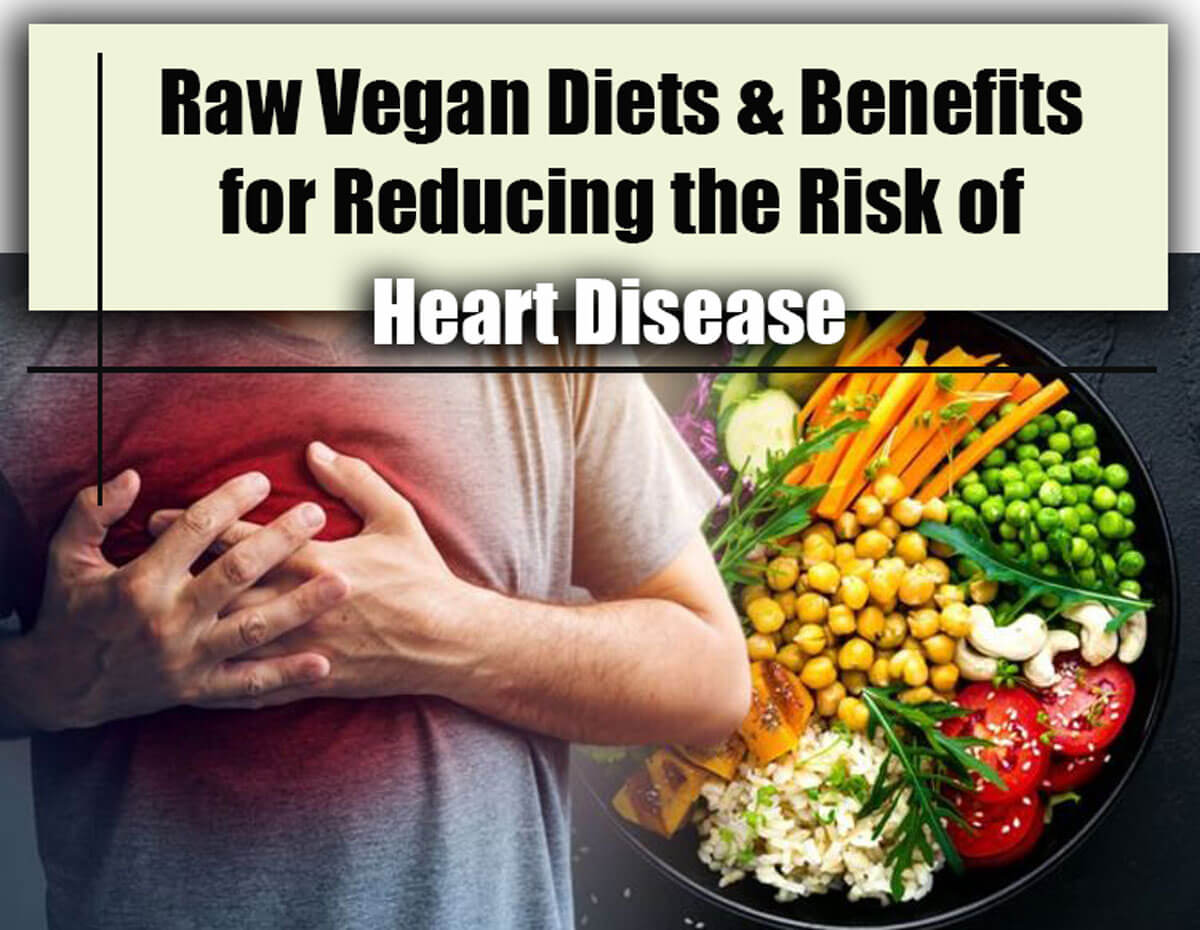
Health benefits of a raw vegan diet
Regarding a raw vegan diet, you can eat fresh fruits, vegetables, and nuts, which are rich in notorious and exclude processed foods high in saturated fats, salt, and sugars that affect health adversely. It’s good for the animals, our planet, and you.
Let’s see how can eating raw veganism help us with health issues:
-
Boast heart health
Eating raw vegan food is not only good for your heart health but also super good for your heart.
Since a raw vegan diet includes a high amount of fruit and vegetable consumption free of saturated fats, you can benefit from heart health.
According to research reports, once you increase the number of eating plant-based products from 3 to 5 times, you can have 17% less exposure to heart disease risk.
All those fruits, veggies, nuts, seeds, sprouts, grains, and legumes are great for your blood pressure and cholesterol levels. Research shows that vegans with high blood pressure risk are 75% lower than meat-consumer.
-
Losing weight
Obesity and overweight is the main health issue in many countries, and they are looking for an authentic way to resolve them since many health issues, such as type 2 diabetes and heart disease, followed by overweight and obesity.
The best thing about the raw vegan diet is helping with losing weight. That’s because you eat fewer calories and more fiber than omnivores.
Fiber helps you feel full and satisfied, so you don’t overeat or snack on junk food. Plus, raw foods are more nutritious and energizing than cooked foods, so you have more motivation to exercise and stay active.
The cohort study on people who followed a vegan diet for 3.7 years shows they lost about 9.9-12 Kg weight.
So, by losing weight and mainlining a balance in weight, people would be less likely to be at risk of health issues.
-
Low risk of diabetes
There is limited research on the impact of raw vegan diets on diabetes risk. Although, a study from 2009 indicates that vegan diets may reduce the risk of type 2 diabetes by almost 50% compared to non-vegetarian diets.
The Centers for Disease Control and Prevention (CDC) suggests dietary modifications can lower the risk of diabetes, such as consuming more fruits and non-starchy vegetables, as you can reduce processed foods and trans fats commonly found in baked and fried foods from your diet.
-
Aid in the digestion system
Adapting to a raw vegan diet can improve your digestion since raw vegan foods are high in fiber, soluble and insoluble fibers.
Insoluble fibers help digestion by adding bulk to the stools, increasing their movement in the gut, and decreasing constipation probability.
On the other hand, soluble fibers feed beneficial bacteria, which are responsible for food breakdown.
And they also, by producing some good nutrients, reduce the likelihood of inflammation in the gut.
Based on this, raw vegans suffer from diseases such as irritable bowel syndrome (IBS), Crohn’s disease, and ulcerative colitis.
Effect of Vegan Diet on Blood Pressure
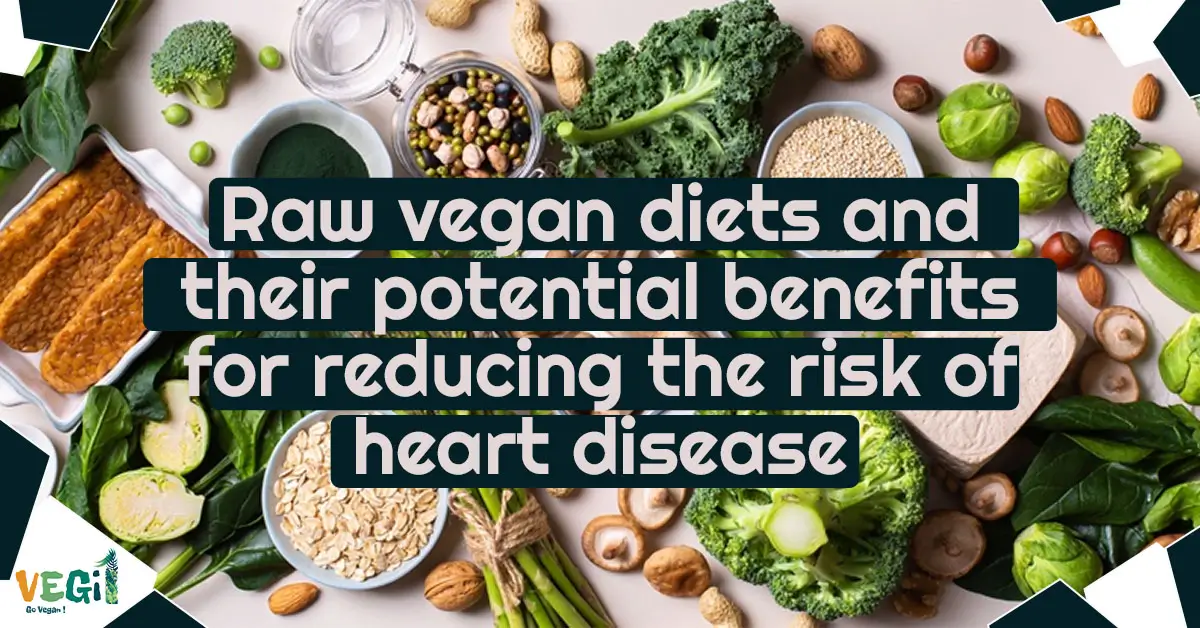
Heart disease – Causes & risk factors of it
Let me tell you something I’ve experienced myself – heart disease is no joke.
Heart disease or cardiovascular disease is one of the common diseases among different nations, which has remained one of the serious diseases that can cause thousands of deaths each year. However, there has been a large promotion in treating this disease.
To talk statistically, every 10 minutes, one Australian dies because of heart disease.
And trust me; you should not take it for guarantee because your heart is like your body’s engine – it pumps blood to every nook and cranny, supplying oxygen and nutrients to all your organs and tissues.
I’ve learned from personal experience that there are many factors at play regarding heart disease.
While smoking, high blood pressure, and being overweight can all contribute to heart disease,
And above all, a wrong diet can enhance the risk of coronary heart disease, which should not be overlooked. For example, eating habits associated with high cholesterol can align with CVD.
Plaque build-up in your arteries can impede the blood flow to your heart, making it challenging to function correctly.
This can lead to chest pain, heart attacks, or strokes.
I’ve also found that specific diets, like ones high in meat and animal products, can increase your risk of developing heart disease because of their high levels of saturated and trans fats.
Additionally, arrhythmia can also be a factor in heart disease, causing your heart to pump less blood and leading to symptoms like dizziness or fainting.
Is it enough to know how a wrong diet can lead to a s serious disease such as heart disease?
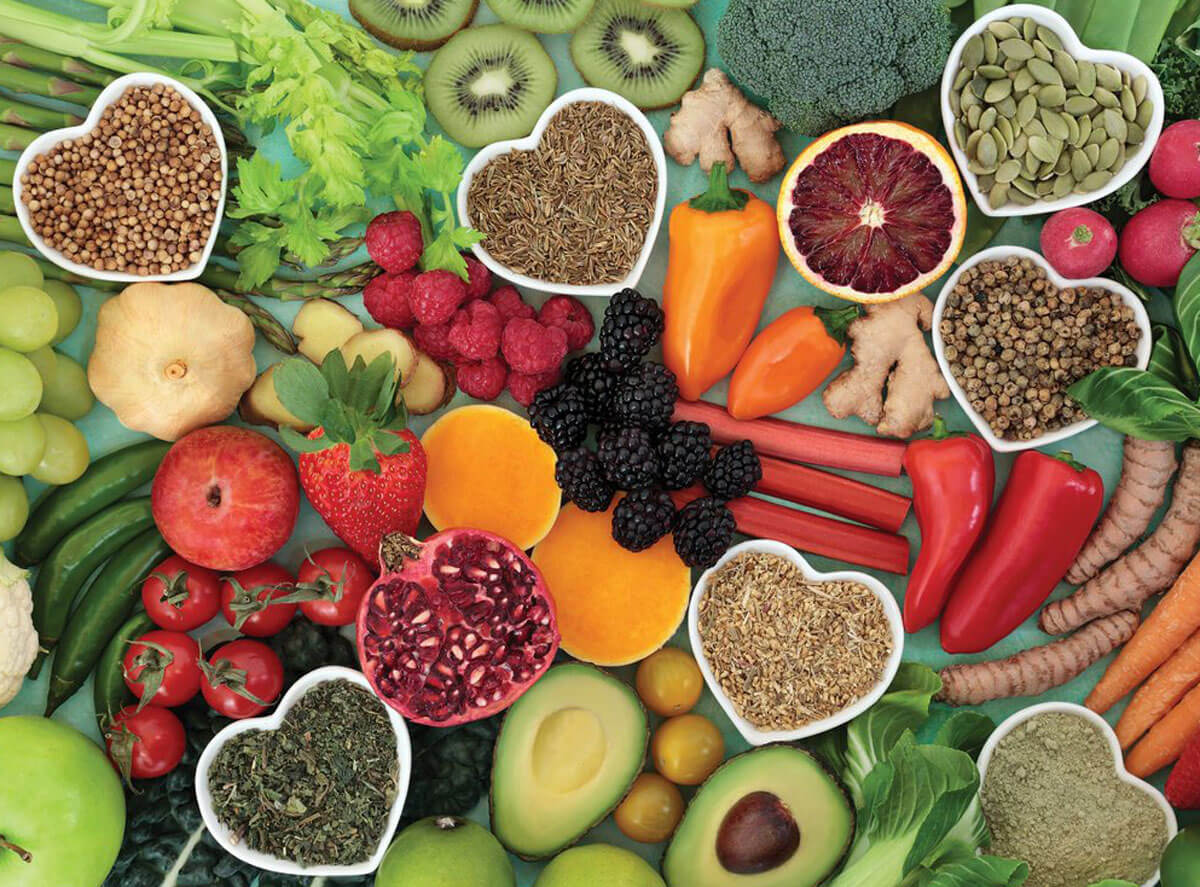
Research on raw vegan diets & heart disease
I’ve been researching raw vegan diets and heart disease, and let me tell you, there’s some wild stuff out there.
The raw vegan diet has been touted to improve energy levels, prevent diseases, and boost overall health.
A low-fat vegetarian or vegan diet could help slow or reverse the progression of coronary heart disease.
A 2014 study found that when patients followed a strict plant-based diet combined with physical activity, their symptoms were significantly reduced, and only 22 percent of them experienced a relapse in tests.
That’s pretty impressive stuff.
Plant-based diets, including raw vegan and low-fat vegetarian diets, have been linked to several health benefits.
Overall, these diets could help reduce the risk of heart disease
How raw vegan diets can reduce the risk of heart disease?
Adopting a vegan diet may not be a miraculous cure for heart disease, given that various factors contribute to serious health issues. However, it can significantly reduce the risk of developing heart disease.
If you’re hoping to see immediate improvements in your health by simply adding more vegetables to your meals, you might be disappointed.
Although by eliminating meat and other animal products from your diet, you’re also removing a significant amount of unhealthy fats that can lead to arterial blockage and heart complications, it is not that much simple.
Recent studies suggest that raw vegan dishes are more beneficial for heart health than their cooked counterparts.
This is not to say that cooked vegan food offers no health benefits, but they are not beneficial for heart diseases as much as raw vegan dishes.
As you know, cooking often involves adding oils and seasonings, including salt, peppers, and others, which can increase the risk of heart disease.
Furthermore, refraining from adding extra salt to your meals can help prevent high blood pressure, heart attacks, and strokes.
If you habitually add salt to your food without checking the taste dish first, it’s advisable to break this habit.
Add more fruits and vegetables to your meals to reduce the risk of heart disease. These foods are rich in vitamins and minerals that benefit heart health.
Hold up; some of you say, “But what about protein?
No worries, my friends; plenty of plant-based protein sources out there’ll keep your muscles pumping and your heart healthy.
And get this – as I mentioned above, one study even found that a strict plant-based diet can reverse the symptoms of heart disease in some patients!
That’s some potent stuff.
So, if you want to improve your heart health and go green, a raw vegan diet could be just what the doctor ordered.
The Role of Raw Vegan Foods in Improving Insulin Sensitivity & Blood Sugar Control
What type of vegan food can help you with heart disease?
As I was sick, I included these vegan ingredients in my daily meal, which has remained my favorite diet until now.
Here are those to help you with heart disease:
-
Fruits and vegetables
Without a doubt, fruits and vegetables antioxidants can protect against heart disease.
In addition to antioxidants, fruit, and vegetables must try the high level of folate, which can reduce homocysteine amino acid in the blood and, as a result, lower the risk of heart disease.
-
Garlic
Although eating raw garlic is not pleasing because of its smell, it is rich in allicin, which can lessen the cholesterol level in the blood.
-
Wholegrain cereals
In addition to fruits and vegetables, which are rich in fiber, you can get your daily fiber from wholegrain cereals. Fiber can help prevent heart disease by lowering blood pressure and cholesterol levels.
And including more fiber-based food in the meal can make you feel full and stop eating more, leading to losing weight and, in turn, being at low risk of heart disease.
-
Nuts and seeds
It would help if you caught nuts and seeds in the diet whether you are vegan or not. Because they are full of nutrients, antioxidants, plant-based proteins, and plant-based sterols, reducing the cholesterol level.
In addition, bot nuts and seeds are packed with fibers, phytosterols, phytochemicals, and bioactive nutrients, preventing inflammation of blood vessels.
Wrong nutritional considerations for a raw vegan diet
Let’s talk about the nitty-gritty of a raw vegan diet.
Since you remove all animal products from your meal, you must be extra careful to ensure you get all the nutrients your body needs to thrive.
Talking about protein is the main concern of most people, and they think you’ll be a muscle-less jellyfish without meat. This is the wrong belief!
Let me reassure you; you do not need to stress about missing out on protein when you switch to a raw vegan diet.
You can find many excellent plant-based protein sources in the market waiting for you.
Have you tried tofu? Seriously, this stuff is like a superhero in the vegan world.
Plus, lentils and quinoa are also great options.
And remember, calcium is essential for maintaining strong bones and teeth.
Plenty of non-dairy sources of calcium, such as kale, and broccoli, can be easily included in a raw vegan diet.
So, when you stick to these tips, you will not experience a lack of protein in your diet while healing from heart disease.
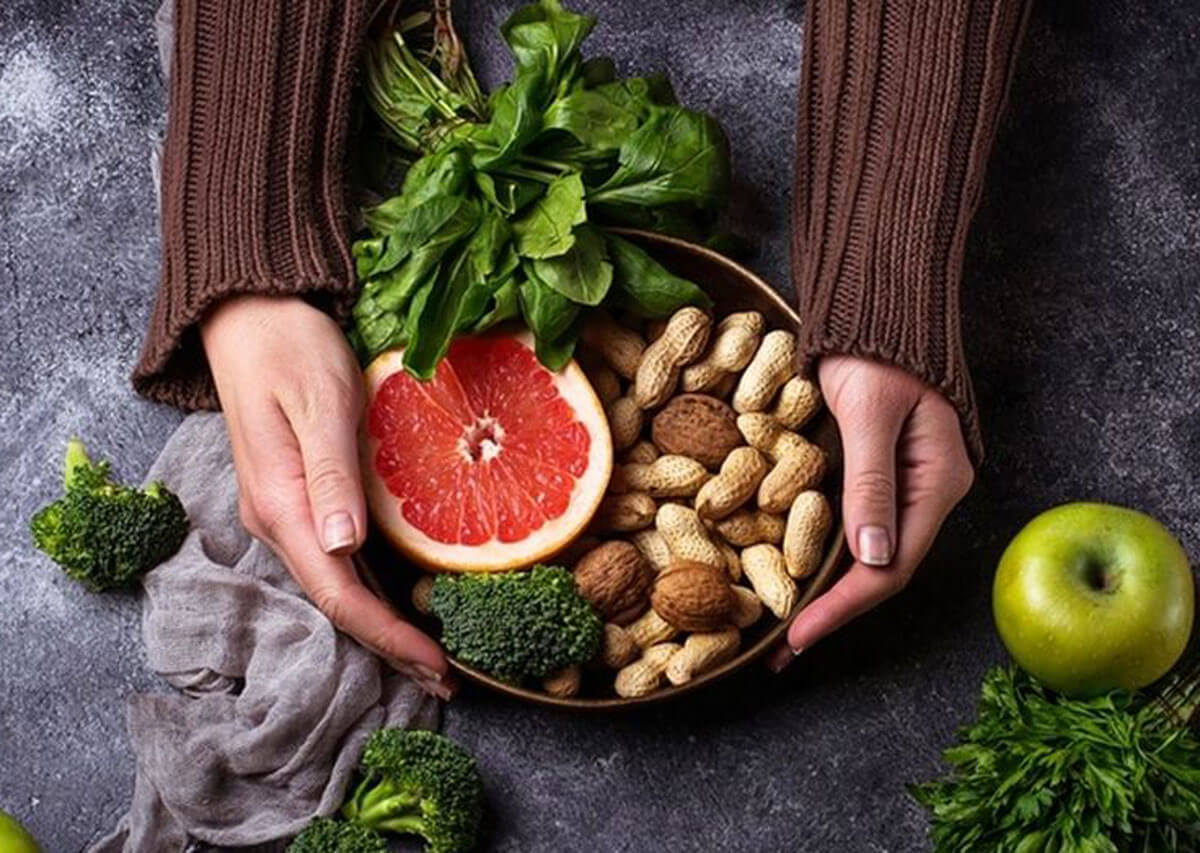
Raw Vegan Diet Meal Plan for Heart Health
I have a suggestive meal plan, allowing you to keep your heart happy and healthy.
And don’t worry; there’s plenty of room to add your favorite foods too!
1. First day
Breakfast: Start your day on the right foot with a bowl of oatmeal topped with fresh berries and flax seeds.
It’s the perfect breakfast that’ll keep you full for hours.
Lunch: whip up a fat salad with your favorite veggies like bell peppers, spinach, kale, and cucumbers.
Drizzle some homemade vinaigrette with olive oil, and throw in chickpeas or tofu for protein power!
Dinner: Try some zucchini noodles smothered in homemade tomato sauce and veggie meatballs made from lentils or mushrooms.
This dish is both healthy and tasty, and it’ll leave you feeling satisfied AF.
And remember snacks!
Slice some juicy apples and slather them with almond butter, or chow down on roasted chickpeas when craving something salty.
2. Second day
Breakfast: Make another bowl of oatmeal topped with those fresh berries and flax seeds.
Lunch: Whip up a massive salad with all the greens you love.
We’re talking avocado, arugula, carrots, broccoli – the works.
Slather on a healthy homemade dressing and toss some black beans or quinoa for extra protein!
Dinner: Fiesta with some veggie fajita bowls works well for dinner time.
Load on grilled peppers, onions, sautéed mushrooms, and your fave protein.
Top it off with some fresh guac and salsa for a flavor explosion!
And, of course, remember snacks such as dehydrated fruit, fruit smoothies, and veggie salad with guacamole dressing in your meal.
Don’t restrict yourself to recipes; you can make a new recipe with your favorite ingredients.
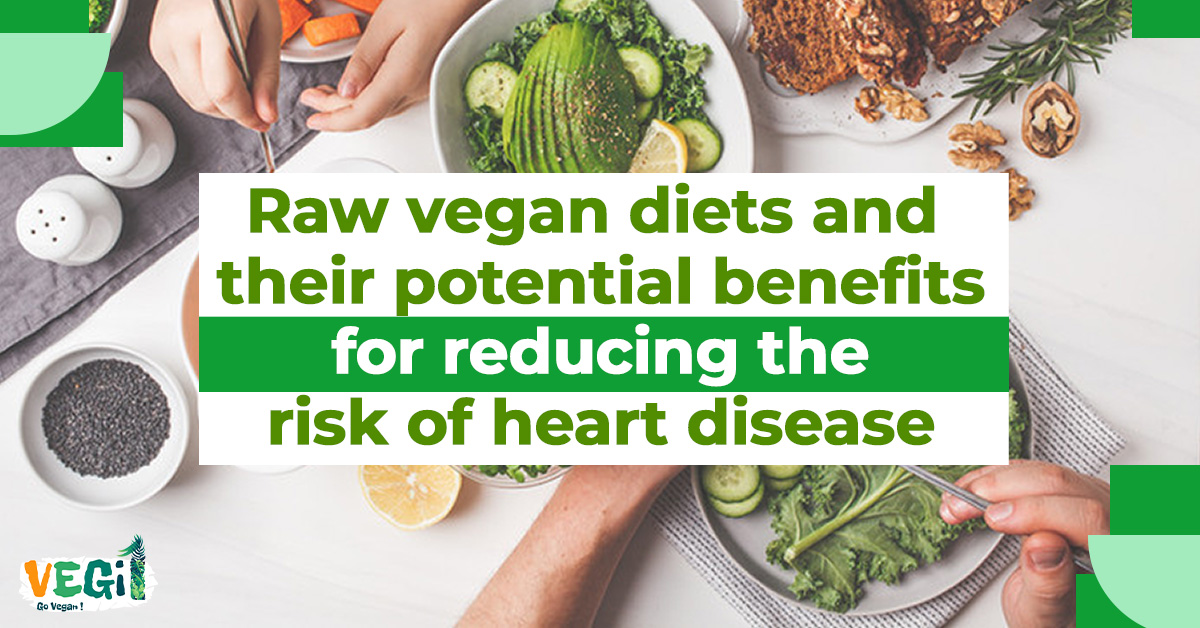
Raw vegan supplements for heart health
Let me tell you, I have been down the supplement road before, and there’s a whole world of options out there; it can get overwhelming.
But I’m here to break it down and make it easy-peasy for you.
Let’s start with the basics – flaxseed and chia seeds.
These little dudes are jam-packed with omega-3 fatty acids that keep your heart healthy and happy.
You can add them to your smoothies, sprinkle them on your salad, or throw them in oatmeal for a nutritious and tasty boost.
Now, let’s talk about beetroot powder.
Yes, that’s right. This crazy-colored supplement can help lower blood pressure levels and boost your endurance during exercise.
You can throw it into a juice or smoothie and feel the power for yourself.
Next up, we have turmeric.
This golden spice is packed with antioxidants and anti-inflammatory properties, making it an excellent supplement for heart health.
You can add turmeric to soups or stews for extra flavor and benefits.
Last but not least, let’s discuss probiotics – these little guys are essential for maintaining a healthy gut which translates into a happy and healthy heart.
Look for vegan-friendly options and add them to your daily routine for some serious health improvements.
Before starting any new supplement regime, it’s vital to do your research and consult with your doctor.
Let’s work towards keeping our hearts strong and healthy, my friends!
Review
All right, my peeps, that’s all I wrote.
I talked about Raw Vegan Diets and Their Potential Benefits for Reducing the Risk of Heart Disease and supplement options for a happy heart and heard my story about how going raw vegan changed the game for me and my heart health.
Trust me, I’ve been there, and I know how tough it can be to make a change, but it’s worth it in the end.
Do your research, talk to your doc, and find what works best for you.
And as always, stay tuned for more tips, stories, and real talk from yours.
You know I always got your back.
Stay safe and stay healthy, you all!


